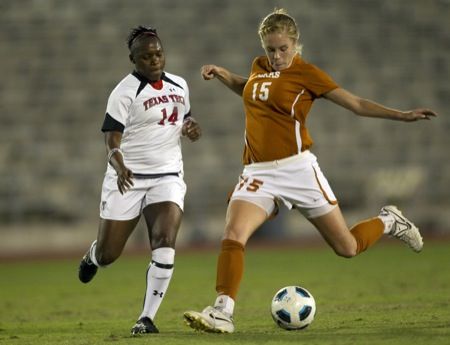May 14, 2024
•
Men's Coaches
College Soccer Coach Salary: What You Need to Know

The latest on everything
College Soccer

Get our 5-minute, daily newsletter on what matters in college soccer.
Are you considering a career as a college soccer coach?
One of the most important factors to consider is the potential salary. College soccer coach salaries can vary widely depending on the division, school, and experience level of the coach. In this article, we'll take a closer look at the salaries of college soccer coaches across the three main NCAA divisions.
D1 Soccer Coach Salaries
D1 soccer coaches typically earn the highest salaries among college soccer coaches. According to the U.S. Bureau of Labor Statistics, the median annual wage for coaches and scouts in colleges, universities, and professional schools was $46,180 in May 2020. However, head coaches of D1 men's soccer teams earned a median salary of $121,000 in 2019, according to the College and University Professional Association for Human Resources (CUPA-HR).
The highest-paid D1 men's soccer coach in 2019 was Sasho Cirovski of the University of Maryland, who earned a salary of $594,309. Other top earners included Bobby Clark of the University of Notre Dame ($352,089) and Mike Noonan of Clemson University ($327,500).
Assistant coaches of D1 men's soccer teams earned a median salary of $42,000 in 2019, according to CUPA-HR. However, this figure can vary widely depending on the school and the coach's experience level.
D2 Soccer Coach Salaries
D2 soccer coach salaries are generally lower than those of D1 coaches but higher than those of D3 coaches. According to CUPA-HR, the median salary for head coaches of D2 men's soccer teams was $62,500 in 2019.
The highest-paid D2 men's soccer coach in 2019 was John Rootes of the University of Tampa, who earned a salary of $116,844. Other top earners included Tom Saxton of Michigan Tech University ($97,000) and John O'Connor of Southern New Hampshire University ($95,000).
Assistant coaches of D2 men's soccer teams earned a median salary of $31,000 in 2019, according to CUPA-HR. However, this figure can vary widely depending on the school and the coach's experience level.
D3 Soccer Coach Salaries
D3 soccer coach salaries are generally the lowest among college soccer coaches. According to CUPA-HR, the median salary for head coaches of D3 men's soccer teams was $51,000 in 2019.
The highest-paid D3 men's soccer coach in 2019 was Chris Kranjc of Claremont McKenna-Harvey Mudd-Scripps Colleges, who earned a salary of $105,060. Other top earners included Bret Simon of Washington University in St. Louis ($98,800) and Jason Carlson of St. Lawrence University ($97,000).
Assistant coaches of D3 men's soccer teams earned a median salary of $28,000 in 2019, according to CUPA-HR. However, this figure can vary widely depending on the school and the coach's experience level.
Factors Affecting College Soccer Coach Salaries
Several factors can affect college soccer coach salaries, including:
1. Division
As we've seen, D1 coaches generally earn the highest salaries, followed by D2 and D3 coaches.
2. School
Salaries can vary widely depending on the school's budget, location, and athletic program success.
3. Experience
Coaches with more experience and a proven track record of success often command higher salaries.
4. Gender
Unfortunately, there is still a significant gender pay gap in college coaching. According to CUPA-HR, the median salary for head coaches of women's soccer teams was $70,000 in 2019, compared to $80,000 for head coaches of men's teams.
College soccer coach salaries can vary widely depending on several factors, including division, school, experience level, and gender. While D1 coaches generally earn the highest salaries, there are opportunities for coaches at all levels to earn a decent living doing what they love. If you're considering a career as a college soccer coach, it's important to research the salaries and opportunities available at different schools and divisions to find the best fit for your goals and experience level.
Related
#1 College Soccer Newsletter
Join thousands of current readers and get our 5-minute, daily newsletter on what matters in college soccer.





